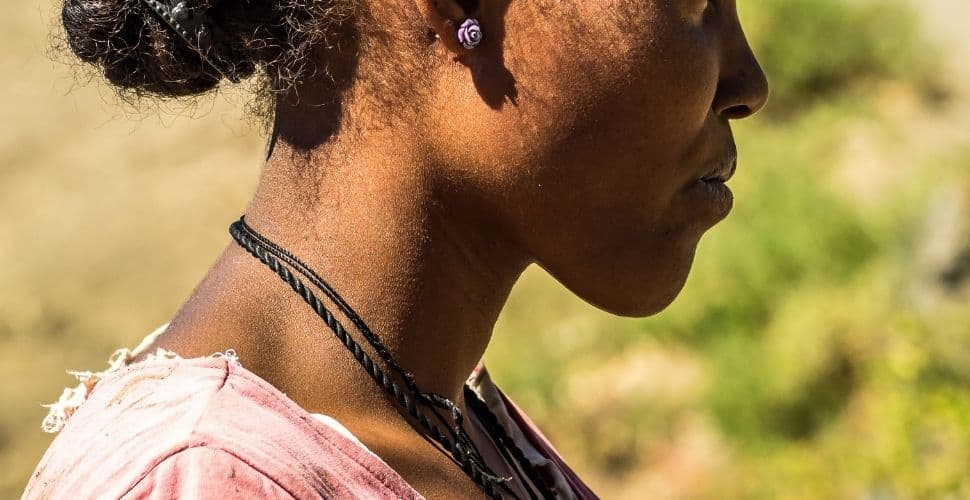Hundreds of thousands of Ethiopian women are being recruited by their own government for domestic servitude in Saudi Arabia despite its longstanding record of abuse and torture.
Exit recruits, enter deportees: A vicious cycle
On receiving a call from an unknown number, a 27-year-old woman, who had returned from Kuwait, told Al Jazeera:
“I was afraid because I thought they might be human traffickers and wondered how they found my name and number,”
The callers told [her] that they were state employees, who had obtained her file from a government database for returnee migrants from the Middle East.
For decades, Ethiopians have sought nonprofessional jobs in the Middle East through recruiters or human traffickers, but this is the first time that the government is running the entire process, from advertising, recruitment, and flights; it claims to protect citizens from the risks associated with traveling through Yemen.
An official communique says, “Due to our country’s strong diplomatic ties with Saudi Arabia, job opportunities for 500,000 Ethiopians, including 150,000 from this region, have been made available.”
Freedom United is unsettled about the mass recruitment. In Saudi Arabia, migrant workers are often excluded from labor protection laws and remain at risk of exploitation under the sponsorship kafala system, which keeps an employee bound to their employer through their immigration status, thereby facilitating their exploitation.
Ethiopian migrant workers have faced arbitrary arrests, torture, mistreatment, beatings, and deportation, Nadia Hardman, a researcher at Human Rights Watch’s Refugee and Migrant Rights Division, disclosed to Al Jazeera.
Free flights to rescue the economy
Al Jazeera reports seeing documents to recruit half a million women to work in Saudi Arabian households. Advertisements on Facebook and billboards in Ethiopian towns began being displayed last month, inviting women to go to government offices to register for these jobs.
Orientation sessions supervised by public officials across the country are being run for new recruits where they are told that they will board flights paid for by the government. One recruit in the north of the country said it was an opportunity of a lifetime. “I was told that this was a quicker path to success in life than school.”
The Ethiopian government says it is guaranteeing workers’ salaries and their well-being through the program.
It is hopeful that the additional remittances from the workers will help Ethiopia’s recovery from its recent civil war. However, in practice, most funds are transferred outside of legitimate channels into “the black-market sinkhole.”
Gain or cost to Ethiopians?
The 27-year-old, whose previous experience makes her highly sought after, is adamant in declining the offer. She empathizes with the new recruits who are ignorant of what awaits them in Saudi Arabia.
She told Al Jazeera:
“I went through hell in the Middle East and I won’t go back,”
“My last employer in Kuwait refused to pay me four months of wages. I have no savings and I’m uncertain about tomorrow, but watching my baby boy grow helps me cope with trauma and frees my mind.
“I’m sad because I feel these women don’t know what awaits them in Saudi Arabia,” she added. “Many will suffer and may even die.”
Nadia Hardman, a researcher at Human Rights Watch’s Refugee and Migrant Rights Division, told Al Jazeera:
“Ethiopian authorities should be seeking to ensure full protections, including the dismantling of the kafala system that traps migrants to abusive employers… They shouldn’t be pushing women into migrating with false guarantees of protection.”
While the first flights departed Ethiopia on April 4, ferrying recruits, officials were waiting to receive a deportation flight bringing back women and children from Saudi Arabia.
Help end domestic slavery by adding your name to the petition calling on governments to ratify the International Convention on Domestic Work c.189. Neither Ethiopia nor Saudia Arabia have ratified this convention.







Freedom United is interested in hearing from our community and welcomes relevant, informed comments, advice, and insights that advance the conversation around our campaigns and advocacy. We value inclusivity and respect within our community. To be approved, your comments should be civil.